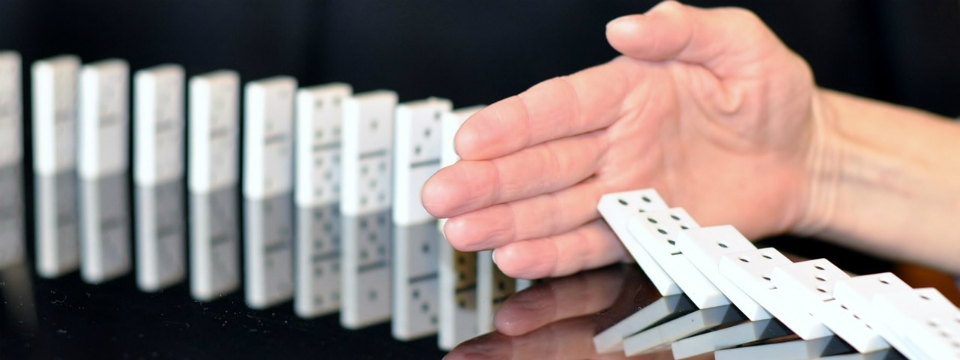How positive youth development programs foster self-regulation
 Mueller, M., Phelps, E., Bowers, E., Agans, J., Urban, J., & Lerner, R. (2011). Youth development program participation and intentional self-regulation skills: Contextual and individual bases of pathways to positive youth development. Journal of Adolescence, 34, 1115-1125.
Mueller, M., Phelps, E., Bowers, E., Agans, J., Urban, J., & Lerner, R. (2011). Youth development program participation and intentional self-regulation skills: Contextual and individual bases of pathways to positive youth development. Journal of Adolescence, 34, 1115-1125.
Problem:
Quality youth development (YD) programs have been shown to be a strong context for promoting positive outcomes. However, when considering the limited resources available, it is necessary to research the underlying aspects of such programs which allow youth to gain the maximum benefit. Thus, the present study “aims to explore the links among individual characteristics of adolescents, their use (or capitalization of) resources provided by participation across time in a quality youth development (YD) program, and their positive youth development (PYD).”
Method:
The current study drew on a subsample of 895 youth from grades 8,9, and 10 in the 4-H Study of Positive Youth Development. Surveys were administered to youth over a 2-hour time block and asked youth about their participation in YD programs which asked about 4-H clubs, 4-H after-school programs, Girl Scouts/Boy Scouts, Big Brother Big Sister, YMCA, and Boys and Girls Clubs; intensity of participation was also measured.
The Selection, Optimization, and Compensation (SOC) questionnaire (Freund & Baltes, 2002) was used to measure internal self-regulation using 3 subscales:
- Elective Selection (S): represents the development of preferences/goals, the construction of a goal hierarchy and the commitment to a set of goals
- Optimization (O): acquisition and investment of goal-relevant means to achieve one’s goals
- i.e.) “I don’t think long about how to realize my plans, I just try it” or “I think about exactly how I can best realize my plans”
- Compensation (C): refers to the use of alternative means to maintain a given level of functioning when specific goal-relevant means are not available anymore
Youth were also given a PYD score (0-10) based on the “Five C’s model of PYD.” The Five C’s included:
- Competence: positive view of one’s actions in a specific domain (i.e. social and academic)
- Confidence: internal sense of overall self-worth, identity, and feelings about one’s physical appearance
- Character: respect for societal and cultural rules, possession of standards for correct behaviors, sense of right and wrong, and integrity
- Connection: positive bond with people and institutions that are reflected in a healthy, bidirectional exchanges
- Caring: degree of sympathy and empathy
- Contribution: a 6th “C” was assessed, by looking at action (i.e., leadership, service and helping others) and ideology (i.e., how important contribution was to the youth’s identity)
Results:
The study examined how youth development program participation and SOC predicted PYD and contribution. The SEM model indicated:
- a direct relationship between SOC at grade 9 in predicting overall grade 10 PYD
- significant pathways between both YD participation and SOC in grade 9 in predicting grade 10 contribution
- positive relationship between grade 8 YD participation and grade 9 SOC , which predicted higher grade 10 PYD and contribution scores
– The models suggest several pathways to youth thriving (PYD and contribution in grade 10) predicted by youth development program participation and intentional self-regulation skills at grades 9 and 10). Intentional self-regulation skills across grades 8 and 9 predicted grade 10 PYD, suggesting the importance of self-regulation skills promoting PYD in adolescence.
Conclusion:
The findings suggest a more nuanced link between intentional self-regulation skills and YD program participation than suggested in past literature. There was no direct relationship between YD participation and Grade 10 PYD. It does appear, however, that participation in a YD program is positively related to SOC skills. Specifically, youths’ ability to make goals, optimize resources to reach their goals, and to compensate when problems block their goals are all relevant skills that would seem to related to youth’s contribution to family, community, and self. The relationship between intentional self-regulation skills and YD program participation suggests the need for future research that examines the mechanisms underlying the relationship between YD participation and SOC skill. Overall, this research highlights the importance of youth participation in quality programs including youth mentoring, that focus on developing intentional self-regulation skills in order to promote youth thriving.
This article was summarized by UMB clinical doctoral student Laura Yoviene.










